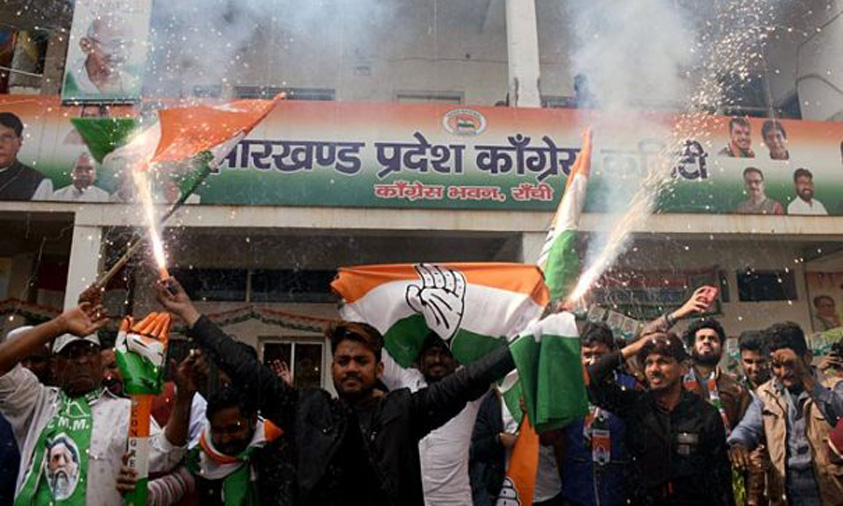With Jharkhand joining the growing list of states slipping out of BJP’s rule, the party now governs mere 35 per cent of the country’s landmass in comparison to over 71 per cent during its peak in 2017 when it was in power in the entire Hindi-speaking heartland.
Its string of losses in states despite the massive victory in the April-May Lok Sabha elections may force the party’s top brass to revisit its strategy for the assembly polls as it prepares for the upcoming battles in Delhi and Bihar.
The percentage of population being governed by the BJP in the states, either on its own or with its allies, now stands at around 43 per cent from over 69 per cent two years back, data analysis show.
What may be of more concern to the party is that its graph in state polls has been on a steady decline since 2018 when it lost its bastions of Madhya Pradesh and Chhattisgarh besides Rajasthan, and its huge victory in the Lok Sabha elections this year has not translated into gains in states.
Political watchers believe that the BJP may have to reconsider its tactic of backing leaders from non-dominant communities in assembly elections, as consolidation of Jat, Maratha and tribal votes against it is seen to be one of the reasons behind its below par performance in Haryana, Maharashtra and Jharkhand respectively.
Opposition parties did much better than expected in Haryana and Maharashtra, even though the BJP emerged as the single largest party in both the states even while losing many seats compared to its previous tally.
The party joined hands with rival Jannayak Janata Party to form the government in Haryana but was outsmarted in Maharashtra by the rival Congress-NCP alliance which joined hands with longtime BJP ally Shiv Sena to come to power at the saffron party’s expense.
If the Haryana and Maharashtra results gave the BJP something to cling to, its defeat in Jharkhand was absolute as for the first time since the state’s formation the party has not emerged as the single largest party.
The BJP always emerged as the single largest party in Jharkhand, once jointly with the Jharkhand Mukti Morcha (JMM). Its face and incumbent chief minister Raghubar Das also appeared headed to defeat to BJP rebel Saryu Roy.
In all three state which have gone to the polls since Prime Minister Narendra Modi led the BJP to a landslide win in the general election, the party’s vote share has fallen by big margins compared to the Lok Sabha polls.
The saffron party’s vote share was more than 55 per cent in Jharkhand and 58 per cent in Haryana in the Lok Sabha elections.
However, it slumped to 33 per cent and 36 per cent respectively in the assembly polls in these two states, held barely a few months after the general elections.
Significantly, the party has suffered losses in states at a time when it has been successful in fulfilling its longstanding ideological promises, including nullifying Article 370, criminalising the practice of triple talaq and enacting Citizenship Amendment Act.
The Supreme Court’s verdict in favour of building a Ram Temple in Ayodhya was also a big boost to the BJP.
Top party leaders in election rallies spoke at length about these “achievements” under the Modi government but the voting returns have been less than what they might have expected.
